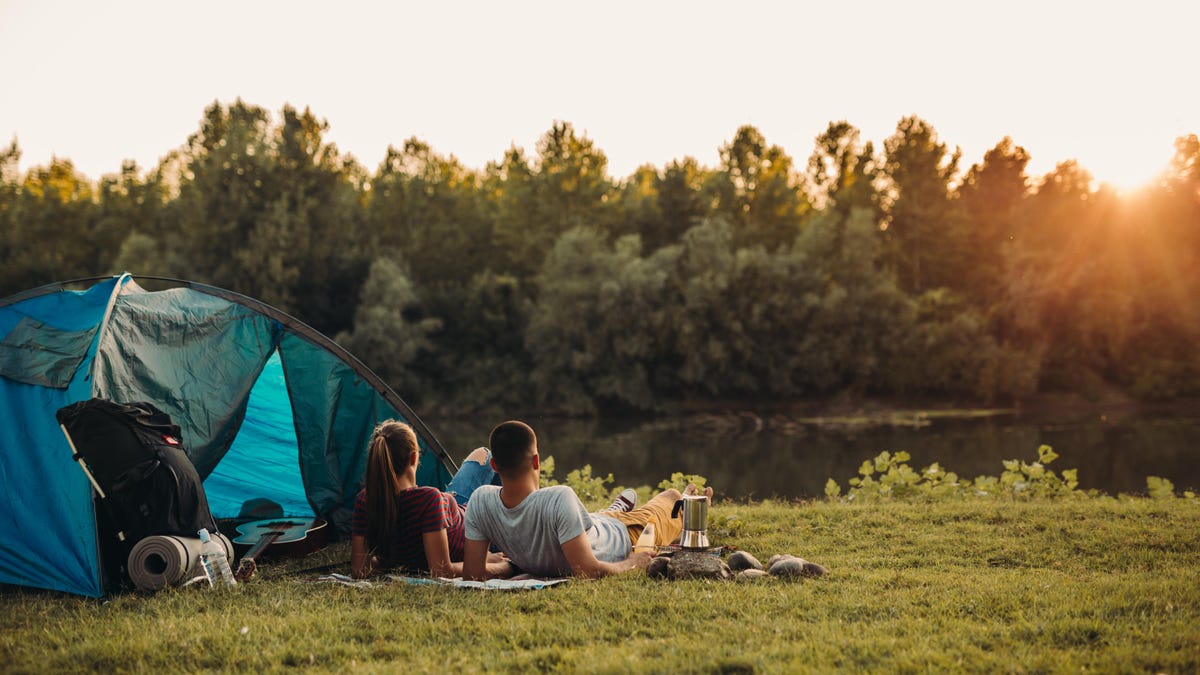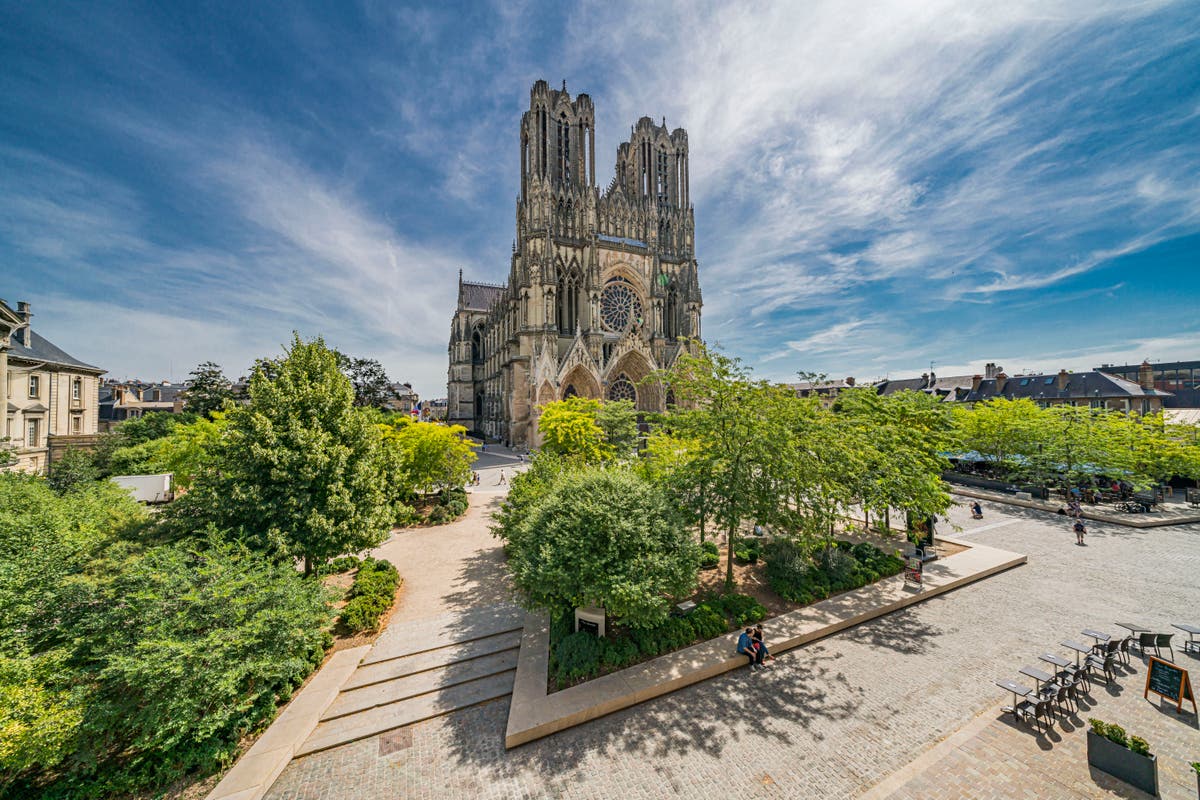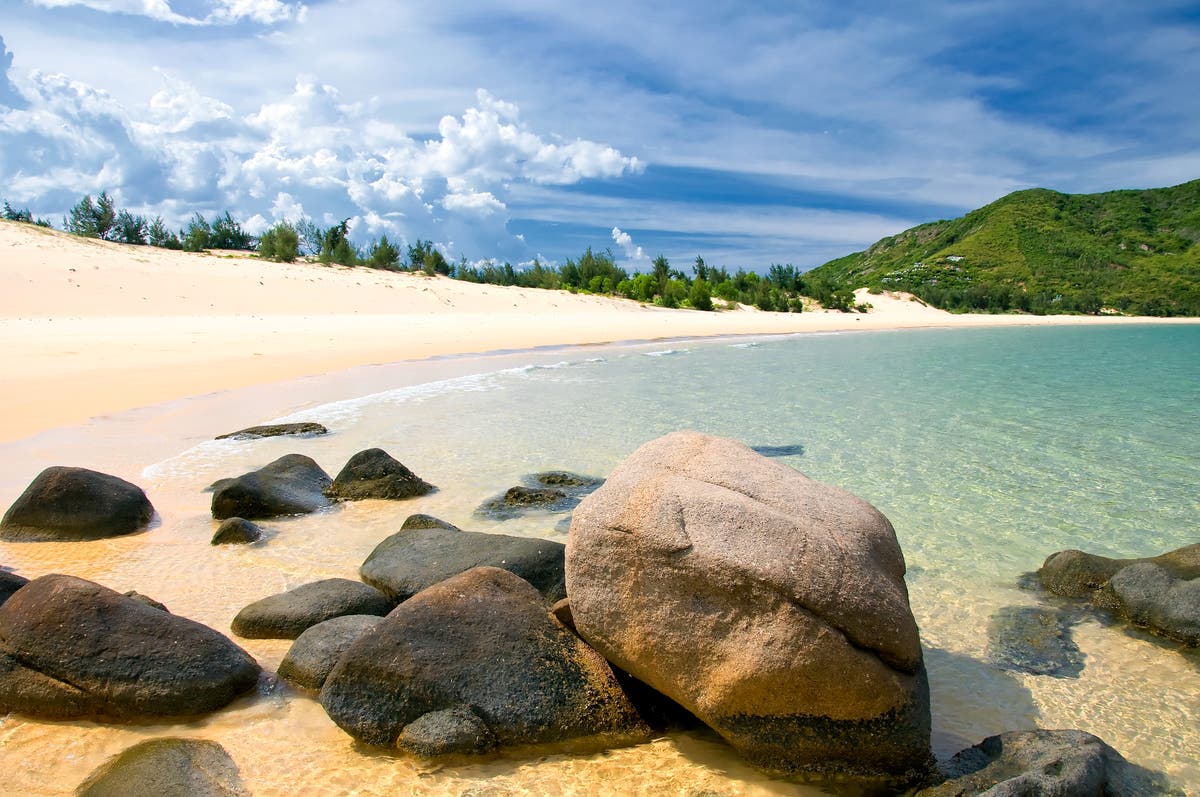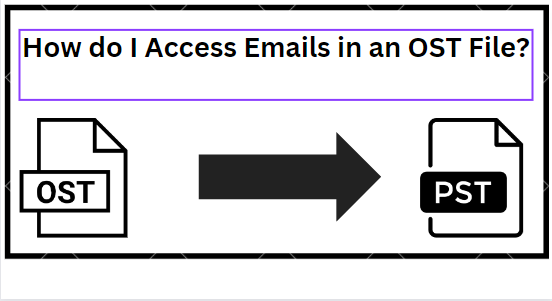How to Camp With Your Partner and Actually Enjoy It
It’s summertime, so naturally you’re looking for fun things to do outdoors with your partner—and camping is one of those pastimes that not only gets you outside but also provides time and space to connect deeply with each other....


Photo: Dejan Dundjerski (Shutterstock)
It’s summertime, so naturally you’re looking for fun things to do outdoors with your partner—and camping is one of those pastimes that not only gets you outside but also provides time and space to connect deeply with each other. But camping is also one of those activities that can go sideways quickly (Mother Nature takes no prisoners). Whether you’re a seasoned outdoors expert or a complete novice, it’s important to put some thought into the first camping trip you take with your partner.
Decide what type of camping trip you both want
“Camping can be challenging if you’re not prepared for it, so first and foremost, be sure to choose a campsite that is suitable for both your needs and has all of the amenities you require,” says Becky Moore, the founder of GlobalGrasshopper, an award-winning blog and resource for independent travelers. “First, make sure you both are on the same page about what you want from the trip. Discuss what activities you’d like to do, what type of camping experience you’re hoping for, and how much time you want to spend outdoors.”
For example, a trip full of hiking and biking is very different from a trip full of lounging around at the campsite. That’s why Sarah Melancon, a sociologist and sexologist, says it’s key to share any concerns, whether about camping in general or camping together.
“When we lay our fears on the table, they can become an opportunity for connection and problem-solving.”
Divvy up the tasks between you
There’s a lot involved when it comes to camping, from packing to setting up the campsite to cooking the food. Such activities are not only necessary to the camping experience but also help couples bond and connect before and during the trip.
“These are all opportunities to communicate about what you’re looking to get out of camping together and work together as a team,” Melancon says. “Creating a great experience together on purpose can help you feel closer at all stages—before, during, and when thinking of the memories afterward.”
For example, you might take turns cooking and cleaning. Or someone sets up the tent while the other makes a fire. When it comes to dividing up tasks, Moore says it’s wise to consider your past experience so you can plan accordingly on who does what and how to approach your experience as a team.
“One way an experienced camper can help a novice camper enjoy their camping experience is by sharing their knowledge and expertise,” she says. “They can give tips on how to set up a campsite, what to pack, how to cook food over a campfire, and how to best enjoy the outdoor surroundings. They can also provide encouragement and support, helping the novice camper feel comfortable and confident in their own abilities.”
Give your partner the benefit of the doubt
Things are bound to get a little wild out in the wild, meaning some things won’t go according to plan. You might get a little lost. Your partner might burn dinner. “Frustration is normal in new and different experiences,” Melancon says. “Though the challenge of camping is that your typical methods of self-soothing may not be available.” If an issue arises, she suggests taking a breather and when you reconnect, she recommends viewing these challenges as opportunities to get closer to one another.
“When camping as a couple, it’s just you and the wilderness. Your typical ways of problem-solving may be more challenging in this environment,” she says. “This means you’ll have to get creative. When you and your partner have a positive experience of problem-solving, especially in a novel environment, it can cause a release of oxytocin and facilitate bonding.”
Take the time to make the experience special
Remember why you’re camping in the first place—to connect and enjoy each other’s company. So make sure to plan what you want to experience during the day and night to make it extra special. “Camping is a fun and affordable way for couples to spend time together,” Moore says. “There are many different activities that couples can enjoy while camping, such as hiking, biking, fishing, and canoeing. Camping can be a very romantic experience if you take the time to set up your campsite properly, enjoy cooking dinner together over a campfire, and take the time to appreciate the stars together in the night sky.”
And if you start seeing your partner in a new light thanks to your new environment, Melancon says that is a good thing. “[This new experience] can make our partner seem even more attractive,” she says. “This echoes relationship therapist Esther Perel’s view (in her book Mating in Captivity) that we feel more desire for our partner when we see them as separate from ourselves and our everyday expectations. Traveling and camping bring new and different situations that can allow us to be surprised and intrigued by our partner, and thus help us feel greater desire and chemistry.”

 BigThink
BigThink 

































